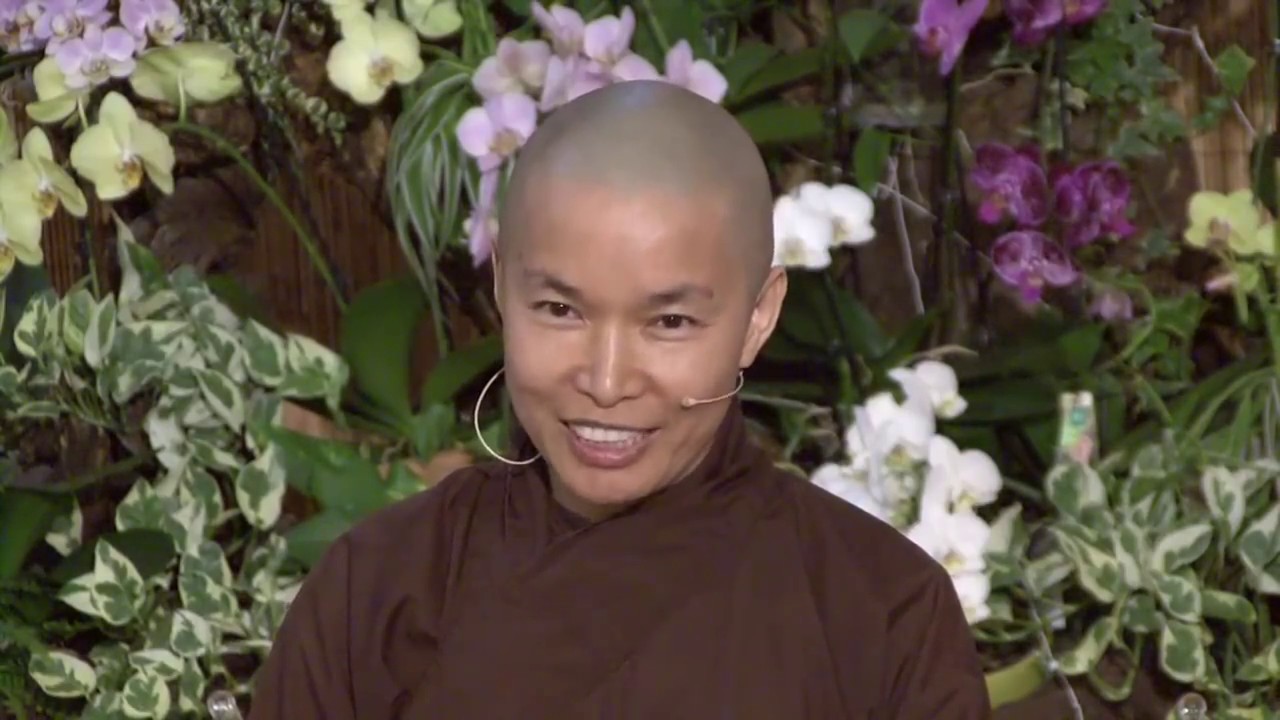The moment we step into Plum Village we want to cultivate the energies of mindfulness, concentration and insight. The Buddha originally taught these three trainings as precepts, concentration and insight. It was Thầy who showed us that precepts are essentially mindfulness. Every precept is a Dharma door. They are guidelines to help us see ourselves.
The Buddha devised the monastic precepts after incidents in the Sangha that caused suffering. Thầy devised the 14 Mindfulness Trainings as a reaction to the situation of his country at war, and of the world at that time. In “Tiếp Hiện” the word “Tiếp” means to be in touch and “Hiện” means here and now. Only in the present moment can we realize peace in order to alleviate suffering. In English it is called the Order of Interring. When we touch interbeing we are open to the suffering of others and motivated to help.
The first three of the 14 Mindfulness Trainings are Openness, Non-Attachment to Views and Freedom of Thought, in line with the ultimate ideal of Buddhism to free ourselves from notions and views. When we are free we can touch Nirvana in the here and now.
When we hold on to an idea or notion we feel rigid and less free. It prevents us from arriving at a deeper insight. In the spirit of meta meditation we can wish for ourselves and others to be free from wrong perceptions and wrong desires: “May I have clarity into my habits and shortcomings.” We can practice this in the morning as a reminder to be aware of our perceptions throughout the day. The Discourse on the Absolute Truth (Sutta Nipata 4.5) can help us to recognize our dogmatic views and the comfort we seek in the sense of identity we get from having views.
As humans we have a tendency to form ideas and opinions. We can take refuge in our breathing to take care of this habit. Living in the Sangha is a precious opportunity to practice with our views. But what does it mean to take refuge in the Sangha? We don’t take refuge in an individual but in the good conditions for practice we create collectively. And in the ability of the Sangha to help us see where we are stuck. We can observe our body in the moment we are holding on to our idea. If we don’t manage to do it during the day we can check in with our body at the end of the day, because the tension will still be there, and breathe with this tension to relax our body and let go of our ideas.
The practice of changing the CD is very powerful but it can also be used to avoid our suffering. Sometimes we need to revisit our suffering when we have enough strength and clarity to go inside and face the discomfort of our suffering.
The teachings of interbeing and non-self can be experienced during daily activities like eating, going to the bathroom and touching the earth and help us let go of ideas and notions of separation. With these insights we can see the suffering of people on the other side of the globe as our own and see that we not only practice for ourselves but for all of us.
Referenced sutra: Discourse on the absolute truth
You can support us by helping to caption & translate https://amara.org/v/lfyx/
You can help us caption and transcribe this video on Amara



